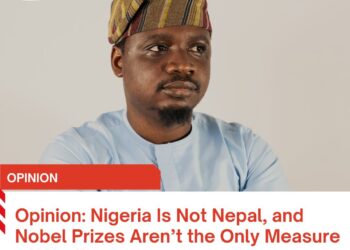By: Ben Abdul
The primary conflict between Russia and Ukraine has been a hot button topic globally for quite some time now. Most IR experts and analysts alike (of Western origin) triumphantly declared an end to the cold war – after the collapse of the Soviet Union in 1991. What does the cold war mean? What necessitated the cold war in the first place? Did the cold war ever end? How relevant is it to our understanding of the Russia-Ukraine conflict? What are the Implications for East – West relations?
The distinguished French Political Scientist, Raymond Aron defined the cold war as a period of, improbable peace and impossible war. Before Raymond, Goerge Orwell had predicted the possibility of a, “peace that is no peace” but it was Walter Lippman who added an ideological ingredient to its definition. The remote origin of the cold war can be traced to the ideological battle of supremacy between the capitalist bloc led by the United States and the Communist bloc led by the defunct Soviet Union after the end of the second world war.
After the fall of the Soviet Union in 1991, America cemented its place as the preeminent global superpower. America entered the noughties years with a triumphant mentality suggesting not only that it has dug the grave of Communism but that Eurasia is theirs to lose.
But why is Eurasia important? As far back as the 1940s, two aspirants for global power, Adolf Hitler led Germany and Stalin Russia entered into an agreement to prevent America from gaining a foothold in Eurasia. The father of geopolitics, Polish born former American diplomat, Zbigniew Brzeziński in his magnum opus; ‘The Grand Chessboard: American Primacy and its Geostrategic Imperatives’ stated that: Eurasia is the center of the world and that he who controls Eurasia controls the world. It was this imperative that made foreign policymakers in Washington identify Russia as an adversary while at the same time proceeding to make former Russian allies in Europe satellites States of America. America’s post-cold war arrogance which was made ominous by President Bush declaration of A New World Order prompted Washington to arrive at an assumption that Russia was too destabilized and incapable of a global resurgence – to the extent of challenging America’s hegemony of Eurasia – and this is where NATO expansionism looms into relevance.
In the 1990s Boris Yetsin (who later anointed Putin for president) reached a verbal agreement with President Bush Snr that if with Russia’s permission Western and Eastern Germany became a unified country, the Northern Atlantic Treaty Organization (NATO) would not move Eastward. Of the fifteen nations that were formed after the collapse of the Soviet Union, nine are now NATO members. If Vladimir Putin wakes up in Kremlin, from his window he can see American ICBM and Patriot missile defense system all stationed at his border with Poland, Latvia, Hungary, Georgia, Estonia and Lithuania yet America keeps on reassuring him that these offensive weapons are stationed there to contain Iran – a country far away in the Persian gulf. There’s a saying that goes, if you have a neighbor walking around your compound with a shotgun, he might tell you all is well but you have every reason to question his intention. Ukraine is the last piece in the puzzle for Russia to become a militarily contained State – if the former joins NATO. The implication of this would be that, the IR concept of balance of power/terror to the Russians will be nothing but an academic concept and that’s why Russia is fighting an existential war in Ukraine.
Putin’s last foreign trip before the start of the Russia-Ukraine war was to China – and he had every reason to. China is an intrinsic part of Brzezinski, Grand Eurasia Chessboard. The outcome of that meeting between Chairman Xi Jinping and President Putin was a declaration of a “no limits partnership” agreement between China and Russia. Before the war in Ukraine, Europe was over 40% dependent on Russian gas. America imported less than 5% of its crude oil from Russia. The liberal economic policy of Putin led to the McDonaldilization of the Russian market. Today, virtually all Western companies have shut their doors in Russia and hit the highway home. But who is the loser and winner in this Grand Chess Game? China and Russia, let me attempt to explain why?
China is an Industrial power that needs gas and crude to oil the wheels of its development while on the other hand, Russia is a relatively import dependent economy. While China is looking for a market for its finished products, Russia is in dire need of a market for its Crude Oil and Gas. It’s economically cheaper to have a pipeline transport crude oil or gas than ship it. Russia already has a gas pipeline to China and is in the process of constructing another. A political, economic and military alliance between Russia and China has to be the greatest Geostrategic blunder of the United States in Eurasia since the collapse of the Soviet Union. The worst thing that can happen to European American security architecture (which took them over thirty years to build) is the prospect of a military alliance between Russia and China – a possibility that from the president Nixon era and to an extent even the Trump presidency attempted to arrest.
At the end of the day, Russia will achieve its political and military objectives in Ukraine which are: a politically neutral and militarily impotent Ukraine. At the same time, before the West realizes that it has exhausted its leverage on Russia, we would all be ushered into a New World Order – this time, not of American design.
LIKE & FOLLOW US ON FACEBOOK & TWITTER




































